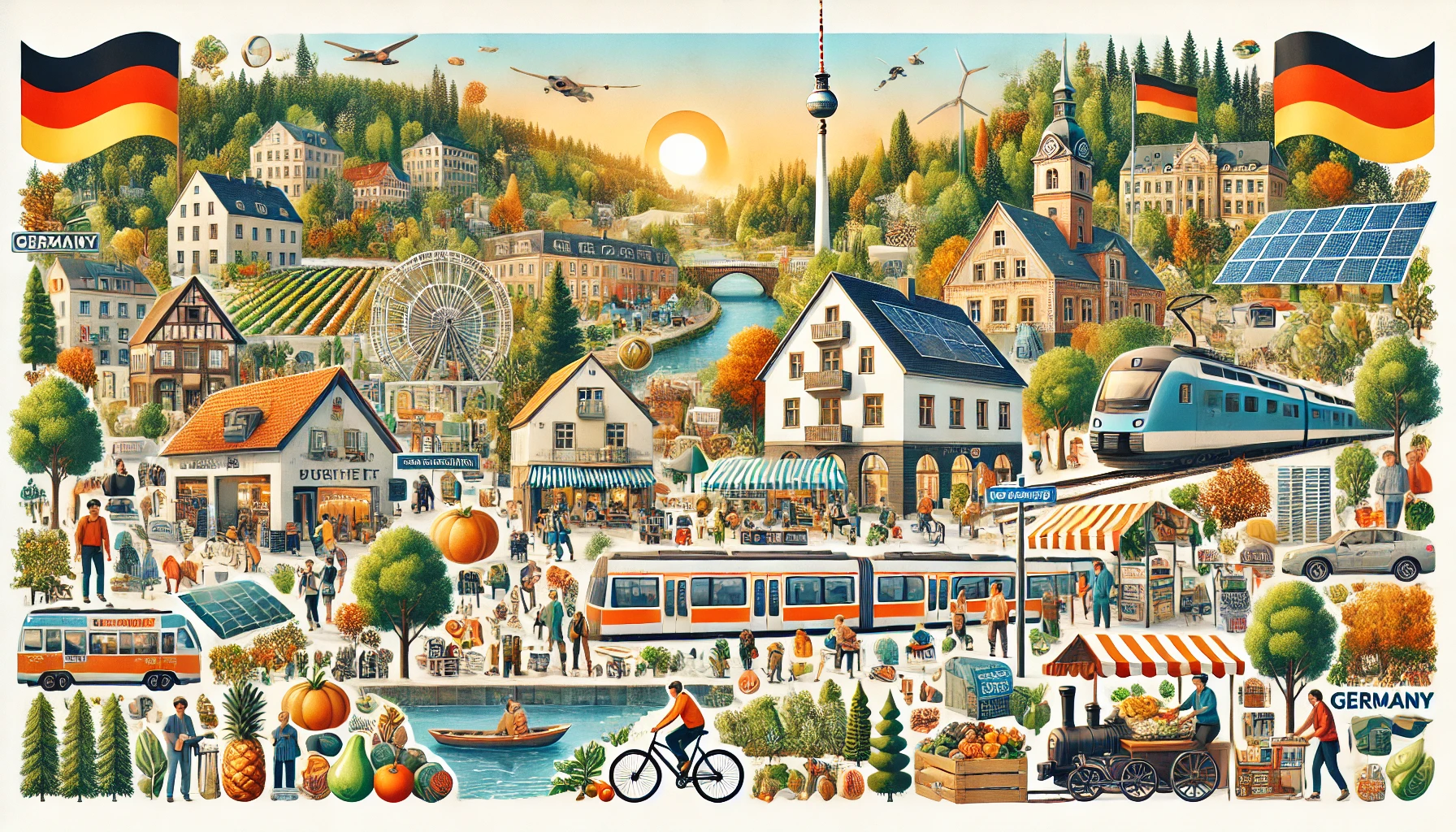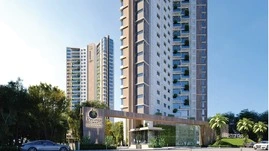How to Achieve a Budget-Friendly and Fulfilling Lifestyle in Germany
Living a fulfilling life without overspending in Germany is not only possible but can be incredibly rewarding with some mindful planning. Here are some practical strategies to help you enjoy your time in Germany on a budget while still living a rich and enjoyable life.
1. Affordable Housing Options
- Shared Accommodation (Wohngemeinschaft or WG): Renting a room in a shared apartment can significantly reduce living expenses. Many Germans, especially students and young professionals, choose this option to save money and enjoy a social living environment.
- Consider Suburban Living: Housing in city centers can be costly, but suburban areas are generally more affordable and often offer efficient public transportation links to the city. This can help you save on rent while still enjoying easy access to urban amenities.
2. Cost-Effective Transportation
- Deutschlandticket: The €49 Deutschlandticket offers unlimited travel on local and regional public transport across Germany, which is an excellent option for frequent travelers. It’s ideal for those who prefer public transport and want to cut down on commuting expenses.
- Cycling: Many cities in Germany are bike-friendly, with designated lanes and bike-sharing programs. Investing in a good bicycle or using shared bikes is an economical and healthy way to commute, saving money on transport costs while contributing to your physical well-being.
3. Economical Dining Options
- Cook at Home: Buying fresh produce and cooking at home is one of the best ways to save on food costs. Germany has weekly markets (Wochenmarkt) that offer fresh and affordable local produce. Planning meals and preparing food at home can save you a significant amount of money compared to dining out.
- Find Budget-Friendly Eateries: Germany has a variety of affordable dining options. Turkish döner shops, for instance, offer filling and tasty meals at a fraction of the price you might pay elsewhere. Food courts and local bakeries also provide quality meals at reasonable prices.
4. Engage in Affordable Leisure Activities
- Free or Low-Cost Attractions: Many cities have free or low-cost events and attractions, such as open-air concerts, museum days, and public festivals. Look out for museums with free entry days and cultural events that can be a fun and educational way to spend your time without breaking the bank.
- Enjoy Nature and Outdoor Activities: Germany is known for its stunning landscapes and hiking trails, which are generally free to access. Exploring nature is not only a budget-friendly way to spend your time but also a great way to stay active. Parks, lakes, and forests across the country offer a refreshing break from city life without any admission fees.
5. Develop Smart Shopping Habits
- Shop at Discount Supermarkets: Germany has a strong selection of budget-friendly supermarkets, such as Aldi, Lidl, and Netto. These stores provide quality products at competitive prices, making it easier to stick to a budget.
- Second-Hand Stores and Online Marketplaces: Thrift stores and second-hand shops are popular in Germany and offer clothing, furniture, and home goods at a fraction of the price. Additionally, online platforms like eBay Kleinanzeigen allow you to buy and sell used items locally.
6. Practice Energy Efficiency
- Energy-Efficient Habits: Electricity and heating costs can add up quickly in Germany. Simple practices, like turning off lights when not in use, unplugging electronics, and regulating heating usage, can help you save on utility bills.
- Take Advantage of Government Programs: Germany has various programs for energy-efficient home refurbishments. Participating in such programs, where available, can help you reduce energy consumption and potentially lower utility costs.
7. Pursue Continuous Learning
- Language Courses: Learning German, or improving your language skills, can open doors for better job opportunities and make daily life easier. Many community centers and online platforms offer affordable or free German language classes.
- Free Educational Resources: Germany has many resources for those interested in learning or upskilling. Public libraries (Stadtbibliotheken) often offer free access to books, language courses, and sometimes even educational software. Additionally, online courses through platforms like Coursera and edX allow you to expand your knowledge in various subjects at low or no cost.
Conclusion
Living a fulfilling life in Germany on a budget is entirely possible with some thoughtful planning and resourcefulness. By focusing on affordable housing, cost-effective transportation, economical dining, and taking advantage of free or low-cost leisure activities, you can maintain a rich lifestyle without overspending. Moreover, practicing energy efficiency and engaging in continuous learning can further enhance your experience in Germany. Embrace these strategies, and you’ll find that enjoying life on a budget can be both rewarding and satisfying.
Q1: What are some affordable housing options in Germany?
A1: Shared accommodation, known as Wohngemeinschaft (WG), is a popular budget-friendly option where you rent a room in an apartment with others. Additionally, living in suburban areas, rather than city centers, can offer lower rent while still providing good access to urban areas through public transport.
Q2: How can I save money on transportation in Germany?
A2: The Deutschlandticket, a monthly subscription for €49, offers unlimited travel on local and regional public transportation, making it an economical option for regular commuters. Cycling is also a practical and budget-friendly choice, as many cities in Germany are bike-friendly with dedicated lanes.
Q3: What are some ways to enjoy dining on a budget in Germany?
A3: Cooking at home with fresh produce from local markets is one of the most cost-effective ways to eat. For dining out, affordable eateries like Turkish döner shops and bakeries provide satisfying meals at reasonable prices. You can enjoy the local flavors without overspending.
Q4: What leisure activities can I enjoy for free or at low cost?
A4: Many museums in Germany offer free entry days, and there are frequent cultural events, such as open-air concerts and public festivals. Outdoor activities, like hiking in nature parks and exploring trails, are free and give you a chance to enjoy Germany’s beautiful landscapes without spending money.
Q5: How can I make my lifestyle more energy-efficient in Germany?
A5: Simple habits, like switching off lights when not in use and regulating your heating carefully, can reduce utility bills. Additionally, Germany has government programs for energy-efficient home refurbishments that you can explore to further cut down on energy costs.














